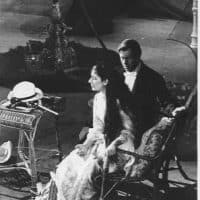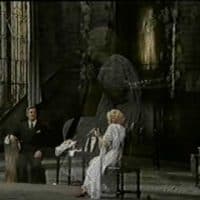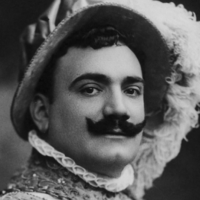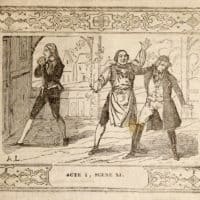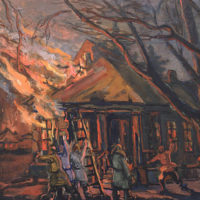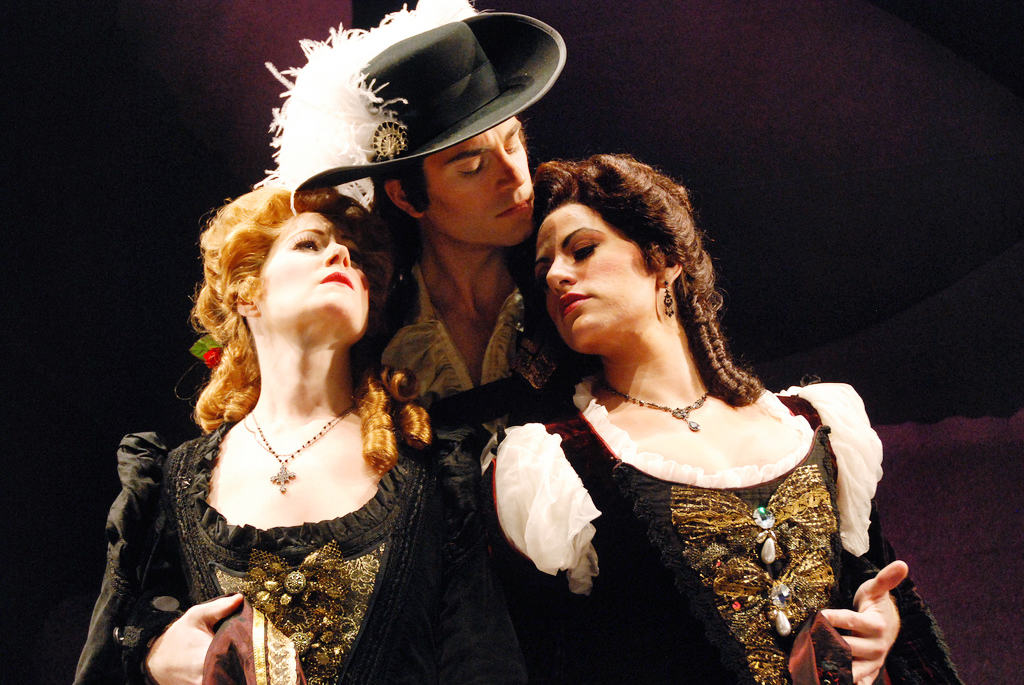
Although the barihunks who play him often lend him a rakish charm, I think we can agree that Don Giovanni is a pretty despicable character. His idea of a good time is sleeping with women however he can get them, whether that’s seduction, lies, or rape, and he keeps a list of his conquests so he can brag about them (or so that his servant can do his bragging for him). Not exactly the kind of guy you’d want for a friend, particularly if you’re female.
However, in spite of his apparent lack of any moral compass, Don Giovanni conforms very well to certain societal norms of honor. The definition of honor is quite fluid by society and time period, so he certainly wouldn’t meet it in many cultures, but by the standards of Golden Age Spain, he’s doing pretty well. Here’s why:
- Honor was not about what you did; it was about what was done to you. You didn’t lose your honor by lying, killing, insulting, or raping others (all things Don Giovanni does). It was only if someone insulted you or accused you publicly of a crime that you risked dishonor.
- Honor was connected to the idea of precedence and being not just objectively honorable but being worth more than other people. This easily escalated into the sort of machismo Don Giovanni embodies, where conquest lists and kills are part of how he proves his superior worth.
- Female honor was very closely tied to chastity, but men were only honor-bound to protect their immediate family members. Don Giovanni’s skirt-chasing is in some ways the continuation of the machismo contest between males–a once-removed fight between him and the men who are supposed to safeguard the women he pursues. Donna Elvira seems to lack a male custodian of her honor, and Zerlina’s is not of sufficient social status to challenge Don Giovanni, but Donna Anna’s father and Don Ottavio both take this aspect of honor pretty seriously.
- When offered a direct challenge by a male of his own standing, Don Giovanni never demurs. (This is important–refusing a duel or the equivalent was the height of dishonorable behavior.) In fact, in the original play by Tirso de Molina, when the statue asks whether Don Juan will do as he says, Don Juan haughtily replies, “Honor / tengo, y las palabras cumplo, / porque caballero soy” [“I have honor, and I keep my word, because I am a gentleman”]. He takes the statue’s hand without hesitation and denies being afraid, even when he feels the fires of hell.
- As he claims above, Don Giovanni does in fact keep his word… with the people who matter in his aristocratic conception of honor. It’s OK to lie “on his honor” to Zerlina because she’s a peasant and a woman; it’s only among other gentlemen that a gentleman’s word has import.
Does any of this make Don Giovanni a good person? Of course not. But it’s worth noting that he is not “dishonorable” or “unconcerned with honor” as some people (both scholars and everyday readers/opera-goers) like to claim. Morality and honor are not equivalent; Don Giovanni lacks the former but seems to abide by the standards of the latter.
This is obviously a very quick gloss of a very complicated subject, so I direct you to the wonderful anthology Honor and Shame: The Values of Mediterranean Society if you’re interested in the honor standards of Spain (and other Mediterranean countries) in the past and present.
